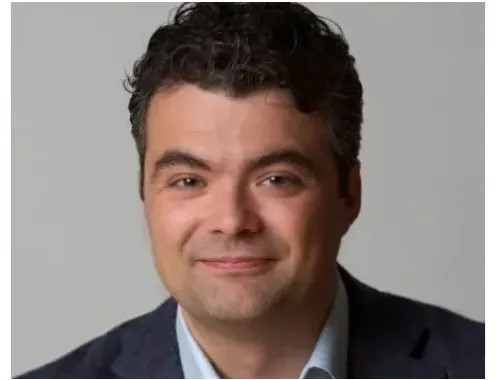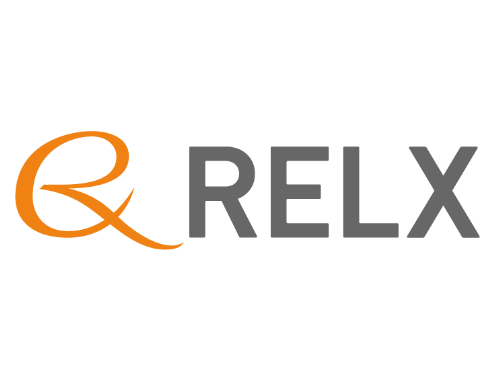Sjoerd Cooijmans - Regional Head of HR, EMEA at RELX


Sjoerd Cooijmans started his career at Reed Elsevier (recently rebranded RELX) as an intern back in the early 00s. Having moved between 14 roles in three different countries, Sjoerd has enjoyed an exciting, international career with the global provider of information-based analytics and decision tools. In this fascinating interview, Sjoerd reflects on his career milestones, the value of working with true purpose and why uncomfortable situations can be a blessing in disguise.
Looking back, has there ever been a leader or manager that’s really influenced your career path?
In the very early days of my HR career working in Amsterdam, I was placed with a manager I didn’t click with – and in the end, I decided to look for another job. I was offered a ‘Head of HR’ role where I’d be responsible for 500 people in the Netherlands – a pretty cool opportunity considering I was only about 30 years old at the time! I jumped at the opportunity and handed in my resignation. Shortly after, however, my manager’s peer in the UK reached out and asked me if I’d consider staying with the company, moving to England and working for him instead, on a secondment at the famous medical journal, The Lancet. As scary as it was to uproot my life and move, I accepted – and ironically, that led me to the best manager I’ve ever had (plus, eventually, my wife!). To this day, I feel grateful for that. It taught me that no place, role or person is a jail – if you’re not happy, it’s up to you to make a change.
What was it about this particular manager’s leadership style that resonated with you?
Despite the level he was at, he was just a normal guy – so down to earth and nonpolitical. He wanted to do a good job, he genuinely cared a lot about people and he was heaps of fun. He took a risk on me and gave me the autonomy I wanted and needed – not just once, but twice, as he moved me over to New York to take on a role there, even though I wasn’t local to the region. The confidence he had in me ultimately made me believe in myself, and although the process of moving wasn’t easy, professionally or personally, I’ll always feel incredibly privileged to have the opportunity to work internationally. That’s also the big benefit of working for big global organisations – if you’re willing to take opportunities when they arise, they can be a real ‘playground’ for your career!
Tell us what excites you about working for RELX?
There are so many things. First, having the opportunity to live and work in London and New York for almost 10 years has been an amazing experience on many levels. The company I joined over two decades ago has grown and evolved so much – from scientific publishers Elsevier to the multi-divisional, high-performing FTSE 100 global company that is RELX. I remember reading an article during the early days of the Internet that predicted which companies would fold due to an increasingly online world – and Reed-Elsevier was number one. People believed that, as content would become freely available online, publishers like us would become surplus to requirement. What no one factored in was that – especially when you’re building platforms for analytics in the medical or research world – the quality of content is everything. The opposite turned out to be true. If you’re prescribing a pill, the difference between 0.1 and 1.0 can mean life or death!
I’m so proud to be part of an organisation that safeguards information in this way – a company full of smart people, whose content is the most trusted in the world and whose work genuinely changes people’s lives. Having a purpose that matters makes a big difference: we don’t sell insurance, beer or sausages – we sell professional, legal and scientific data. In the era of AI, data is gold.
Looking at current and future advancements in technology, how do you see AI impacting both your business and the HR function at RELX?
Interestingly, once again, people have been predicting the demise of organisations like RELX due to AI. You may need to catch up with me in five years to tell me I was completely wrong, but for me, AI isn’t some big threat. It’s just technology – and technology is nothing without reliable content. That’s the fuel for AI. That’s not to say there aren’t huge possibilities with it. For us, putting AI on top of the biggest pile of trusted information in the world is going to have some incredible benefits. It’ll be able to identify links between different pieces of research and in our medical division, it’ll be able to accurately define relations between drug interactions in seconds. If you think about it, relying entirely on one doctor’s brain is kind of risky – plus there are still huge parts of the world where reliable healthcare is still inaccessible for many. AI will eventually have the capability to clone expertise in a way that solves those problems and furthers the contributions we make to society and the communities in which we operate.
As far as generative AI goes, I’m curious to see what the future holds – especially in the HR space. Myself and other Heads of EMEA met in London a month or so and we looked at how AI can help us source the best recruits, whether that’s internally or externally, as well as help us with more every day, transactional tasks – benefits, policies, etc. Once again, though, you can only make use of AI if you get your house in order first. I sometimes think that HR functions have a tendency to be over-complicated operationally. If you have six sets of competencies for one role, for example, even AI won’t be able to figure it out. So if we’re first able to simplify and streamline what we do, the opportunities to boost engagement and save costs using AI could be huge – and even more so on the business side, in developing new time/resource-saving products and services.
Then if you think about it, there are all the other more subtle outcomes you wouldn’t necessarily expect – for example, they’ve found out that people talk more openly and truthfully to AI than they would a doctor or a psychologist, which leads to better diagnosis, better treatment and better health outcomes. It’s fascinating stuff.
Finally, a bit of personal insight – what’s your favourite motto or allegory when it comes to life and work?
My most important job is being a dad and I’m always reading stories together with my 7 and 8-year-old children. There’s one called The Boy, the Mole, the Fox, and the Horse by Charlie Mackesy, and in it, there’s a quote that really sticks with me both personally and professionally: “One of the greatest freedoms we have is how we react to things”. Going back to what we discussed at the beginning, you don’t always have a choice in a lot of areas – how many emails you receive, who your manager is, and what might be thrown at you out of the blue (especially true in HR). What you can control is how you deal with those things. I think teaching these interpretative skills to our kids is going to be vital as they navigate the mental health challenges of growing up with social media, and all the pressures they face in their social relationships with peers at school. And then later, with the stresses we all encounter in the workplace.
Another favourite quote comes, again, from a children’s book – The Big Panda and the Tiny Dragon by James Norbury. There’s a moment in there where the characters ask, “What’s more important – the journey or the destination?” And the tiny dragon says, “The company you keep along the way”. That’s so true, especially when I think about the team I work with – we have so much fun together. And as global colleagues, we’re always learning from one another as a natural consequence of cultural, language and communication differences. It’s been one of the most fascinating parts of my journey here and it’s something I’m always aware of in the way I lead my team.
Last of all (and this is particularly relevant to me right now – in the early days of a new head of HR for EMEA role and still working everything out!) – if a role change doesn’t scare you a bit, don’t do it. It’s that edge of fear, that element of the unknown, that adrenaline that will ultimately push you, develop you and bring the fulfilment you look for in your career journey.
Thank you to Sjoerd for speaking to Katie Insley, Associate Director in our Human Resources recruitment team in the Netherlands.
Views and opinions contained within our Executive Interviews are those of the interviewee and not views shared by EMEA Recruitment.






You can also use your social account to sign in. First you need to:
Accept Terms & Conditions And Privacy Policy